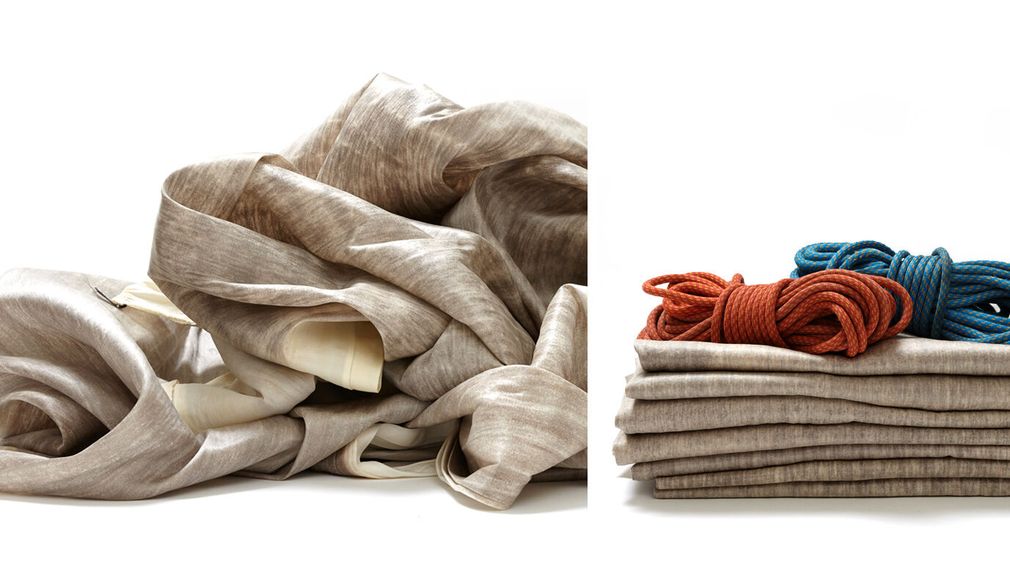Wealth in Waste: LA's Textile Upcycling and Recycling
Rewilder exists to convince the world that there is wealth in waste. We focus on textile waste, partnering with industrial giants to identify, divert, and upcycle waste materials that are worthy of a second life. Upcycling materials is the best end-of-life solution for the environment. The LA2050 grant will fund the expansion of our current successful operation - R+D design lab plus high-tech upcycling - into a larger facility including closed-loop textile recycling (old clothes and fabrics into quality recycled fibers).

In which areas of Los Angeles will you be directly working?
Central LA
County of Los Angeles
City of Los Angeles
What is the problem that you are seeking to address?
Over 11 million tons of textiles are landfilled globally. Our entire business revolves around decreasing textile waste to landfill, and shifting the conversation about trash from where we put it, to what can we make with it? With design thinking, we can do better than landfill by upcycling and closed-loop recycling that uses existing materials rather than making new. Most of our trash heads to a landfill where it will sit for hundreds of years, all the while releasing toxins. According to the EPA, there are at least 564 operational landfills and 480 candidate sites. Since the 1960s, predominantly BIPOC communities have been targeted as sites where it has been acceptable to dump our trash. The pre-pandemic prosperity was a facade that maintained a failing system, but now, we are in a better position than ever to tackle bigger issues because it’s what the world needs. In parallel, the world will also be more receptive to what we have to offer: completely rethinking textile waste.
Describe the project, program, or initiative that this grant will support to address the problem identified.
When we think about waste, we always think about post-consumer. But industrial manufacturing generates massive amounts of trash: the brewery we work with tosses 2 tons of beer filter cloth every 3 days, and the auto industry trashes 100K tons of material a year. Much of it is non-recyclable and high-performance. Our work targets these industrial processes to intercept the materials before they go to the landfill, and transform them into usable raw materials for cross-industry applications. This grant will immediately support the expansion of our facility to include a larger space for rehabilitating industrial trash in order to offer these materials widely to designers and manufacturers across the country. The grant will also allow us to prioritize the new technology of closed-loop textile recycling, which complements our work and increases our impact. We are working with an expert liaison to this new material science and will be bringing in technology to shred old fabrics like t-shirts (consumer scale), uniforms, and sheets (commercial scale) and reconstruct fibers to make new fabric of equal quality. The technology will sort input fabric by color, thus reducing the need for dyeing or additional processing. We have made great progress already, and will use the LA2050 grant to propel this quickly forward. Our goal is to make a significant impact on textile waste sent to landfills in Los Angeles.
In what stage of innovation is this project, program, or initiative?
Expand existing project, program, or initiative
Approximately how many people will be impacted by this project, program, or initiative?
Direct Impact: 50
Indirect Impact: 1,010,572
Describe how Los Angeles County will be different if your work is successful.
Our Los Angeles is a leader in innovation and sustainability, a leader in technology with global influence. The pandemic, however cruel, shows the need for social capitalism. Now is the time for business to work for a greater good. Rewilder will jumpstart a sustainable textile revolution, where the robust apparel industry here has easy access to high-tech sustainable materials, plus impact data to back it up. We are committed to building a facility that reflects our company ethos of sustainability, transparency, honesty, fairness, diversity, community and good design. We are innovators - finding solutions to the world’s trash problems that incorporate both upcycling and recycling, and forward-thinking research and development that fuels innovation. Our company is woman owned and operated. Jenny is Jewish / LBGTQ, and Stephanie is Chinese-American. We are committed to making this city a better place to live and work by building a unique place that benefits people and the planet.
What evidence do you have that this project, program, or initiative is or will be successful, and how will you define and measure success?
We have a proven track record of high-impact material diversions with partners including Disney, PepsiCo, UCLA, Hollywood Bowl, Imperfect Foods, LA Metro, and more. For each of these projects, we measure and report the weight of the material, as well as CO2 diverted from landfills. This has a direct impact on human health and the health of the planet. With this expansion, Rewilder will: - Divert waste sent to landfill - Recapture resource value - Measure and provide clear impact metrics - Accelerate “zero waste to landfill” initiatives Beyond waste diversion, the project reduces carbon emissions in 3 ways: - Landfilling footprint – reduce CO2 from landfilling - New material footprint – reduce CO2 required to grow, create, process, and manufacture new materials - Logistics footprint – reduce CO2 used to transport Landfill reduction has a direct health impact on low-income BIPOC. Fighting against climate change is fighting against issues like social justice and inequality.
Which of the CREATE metrics will you impact?
Manufacturing activity
Jobs per capita
Minority- and women-owned businesses